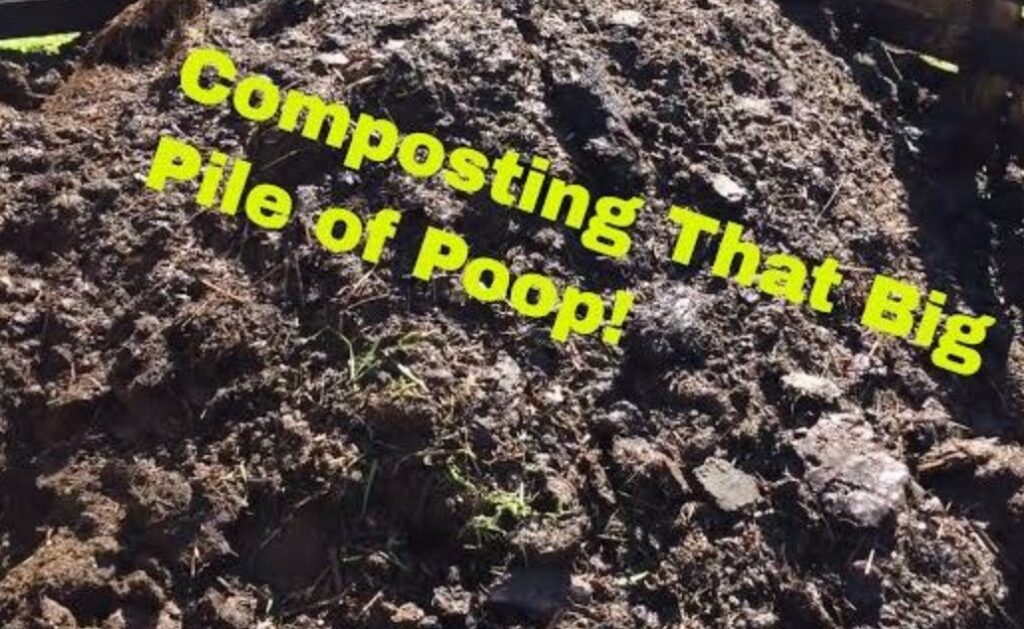Yes, animal poop can be composted, but there are some important considerations and guidelines to follow, depending on the type of animal waste.
Contents
Here are some key points to keep in mind:
- Pet Waste (Dogs and Cats):
- Pet waste can contain harmful pathogens, so it is not recommended for traditional home composting systems. It’s best to avoid composting dog and cat feces in your regular compost bin. Instead, consider using a separate, specialized pet waste composter or waste disposal service. Follow local regulations and recommendations for pet waste disposal.
- Herbivore Manure (Cows, Horses, Chickens, etc.):
- Manure from herbivorous animals, such as cows, horses, and chickens, can be safely composted. These animals primarily consume plant material, resulting in manure that is rich in organic matter and valuable nutrients for your compost. To compost animal manure:
- Mix it with other compostable materials like yard waste, straw, or leaves to create a balanced compost pile.
- Ensure the compost pile reaches and maintains a high temperature (above 140°F or 60°C) for a sustained period to kill any pathogens.
- Allow the compost to fully decompose over time, typically several months to a year.
- Use the finished compost in your garden.
- Manure from herbivorous animals, such as cows, horses, and chickens, can be safely composted. These animals primarily consume plant material, resulting in manure that is rich in organic matter and valuable nutrients for your compost. To compost animal manure:
- Rodent and Carnivore Waste:
- Waste from rodents and carnivorous animals should generally be avoided in home composting systems due to the potential for pathogens. It’s better to dispose of this waste separately.
- Proper Handling and Hygiene:
- When handling animal waste, take precautions to protect your health. Always wash your hands thoroughly afterward and avoid contact with your face. If you’re using animal manure in your compost, make sure it’s well-mixed and fully decomposed before using it in your garden to reduce the risk of contamination.
- Local Regulations:
- Be aware of any local regulations or guidelines related to composting animal waste. Regulations may vary by location and may specify how to properly manage such waste.
Remember that composting animal waste, especially manure, can be beneficial for enriching your garden soil with valuable nutrients and organic matter. However, it’s essential to handle and compost it correctly to ensure the safety of your compost and the well-being of your garden.
Composting is a great way to recycle food waste, yard trimmings, and other organic materials. Compost is a natural alternative to chemical fertilizers and pesticides.
But did you know that animal poop can be recycled? You can compost it, which makes it turn into something useful for the environment and your garden.
You just need to find a composting bin or compost heap, collect the poop in it, then add some other organic material like leaves, grass clippings or food scraps. Cover this with soil and leave it for six months to make sure everything breaks down properly.
Composting is a natural process that can turn animal poop into nutrient-rich soil.
The Best Way to Compost Animal Poop
The first step is to find a good location for the compost pile. It needs to be close enough that you can easily take care of it, but far enough away that you don’t smell the pile every day.
The second step is to start layering leaves and other plant material on top of the soil where the poop will go. This will help keep your compost moist and warm which is important for breaking down all the materials in
Composting is a natural process that takes organic material and breaks it down into a form that can be used as fertilizer. Animal poop is one of the many things that can be composted.
How long does animal poop take to decompose into compost
Animal poop is a natural fertilizer, and it can take between two weeks to six months to decompose into compost.
The rate of decomposition will vary depending on the type of animal, the climate, and the soil conditions.
There are many factors that come into play when trying to determine how long it will take for animal poop to decompose. The type of animal, the size of the animal, the environment, and the location of where it was deposited all contribute to how quickly or slowly it will decompose.


